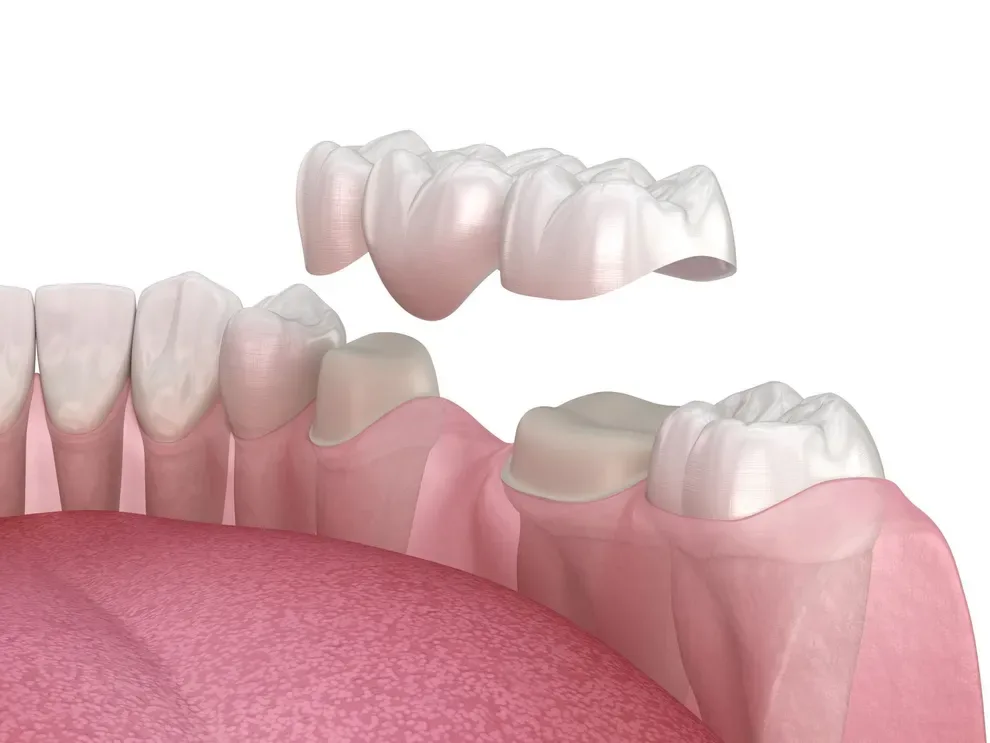How Much Do Dental Bridges Cost and Why Insurance Helps

Table of Contents
- How Much Do Dental Bridges Cost
- Will You Incur Costs After the Procedure
- Will Insurance Help
- Without Insurance
- References
If you’re missing any teeth, your dentist might recommend a dental bridge as a temporary or long-term solution. A dental bridge comprises a false tooth (pontic) attached to one or two of the teeth next to it.
These teeth (abutment teeth) provide the anchor points for the bridge. Alternatively, an oral surgeon can implant artificial abutments to provide anchorage.
Depending on the type of dental bridge you need and healthcare costs in your state, the cost of a dental bridge can run deep into the thousands. However, with insurance, you can get up to half of your dental fees paid off.
How Much Do Dental Bridges Cost?
You can get a dental bridge procedure done for between $1,500 and $15,000 depending on four things: the type of bridge you need; how many missing teeth you have; the difficulty of the surgery; and where you live.
Possessing good bone density is crucial to support implant-supported bridges, and for patients lacking in this area, a bone graft may be taken.
Breakdown of Costs: Will You Incur Costs After the Procedure?
Will Insurance Help?
You will pay significantly less for a dental bridge with insurance coverage. However, it’s important to be familiar with your provider’s policies as they vary considerably between providers. Some things to look out for are:
Exclusions for pre-existing conditions (such as periodontal disease)
Waiting periods for healthcare that’s not preventative
The former can make you ineligible for insurance coverage for dental bridges, while the latter will require you to wait at least one year to get coverage for any procedures outside of preventative care.
Dental insurance covers 40% to 50% of the total cost of dental bridges. Of course, the percentage covered varies by provider and geographical location. Nevertheless, this is the most common range offered by insurance companies.
Without Insurance
Insurance will reduce your dental bill by around half and will cover the cost of aftercare necessities such as pain medication, follow-up visits, and more.
Keep in mind that all of these procedures require two sessions or more to complete, and most healthcare providers will bill you for each of them. The surgical option will require two or more x-rays to establish bone density and to ascertain that the implant has settled.
You may also need to replace a failed bridge years down the line as dental bridges sometimes come apart. The dental costs it could run you are significant, especially if you’re paying them in full.
Insurance dramatically cuts down the cost of getting the best dental service in your area and receiving quality dental bridges that last for years.
